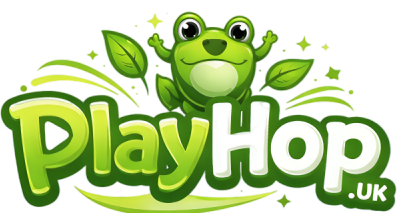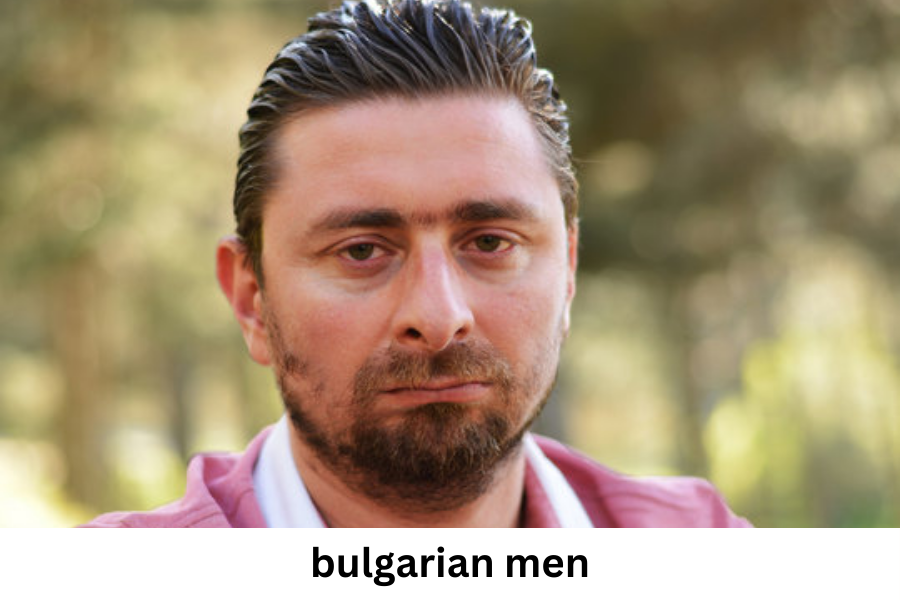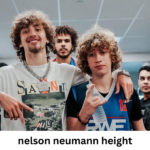Bulgaria, a country with a rich historical heritage and diverse cultural influences, is known for its strong traditions and vibrant lifestyle. Bulgarian men, in particular, hold a significant place in the country’s social fabric. They are shaped by a blend of ancient customs, modern realities, and unique national pride that permeates every aspect of their lives. From their societal roles to their physical characteristics, dating customs, and participation in cultural traditions, Bulgarian men are a fascinating subject to explore.
Cultural Background of Bulgarian Men
Bulgaria’s cultural identity is a tapestry woven from a variety of influences, including Slavic, Thracian, and Proto-Bulgarian legacies. This history has shaped the values, customs, and lifestyles of the Bulgarian people, including its men. Bulgarian men are typically seen as the backbone of the family and society. Traditionally, they have played the role of protectors and providers, a responsibility they take very seriously. The role of men in Bulgarian society has remained relatively stable over centuries, with a strong focus on familial bonds, community, and hospitality.
The idea of family is central to the lives of Bulgarian men. In rural areas, where traditions are still deeply ingrained, the patriarchal structure remains dominant. Fathers, grandfathers, and uncles often hold the most respected positions in the family, and their decisions impact the household’s daily functioning. Family gatherings, often centered around home-cooked meals and lively conversations, are a hallmark of Bulgarian life, and men are expected to uphold and pass on cultural traditions.
In urban centers like Sofia or Plovdiv, Bulgarian men are more likely to experience influences from globalized and modern lifestyles. However, even in these settings, respect for family and tradition continues to shape their behavior. Modern Bulgarian men often walk a fine line between embracing global culture and maintaining their roots.
Wiki
| Aspect | Details |
| Cultural Role | Traditionally seen as the providers, protectors, and leaders of the family. |
| Family Importance | Family is central to their identity, with a strong sense of loyalty and protection. |
| Physical Appearance | Medium to tall height, typically dark hair, and varying eye colors such as brown, green, and blue. |
| Societal Role | Men are expected to lead, especially in rural areas, but urban areas show more shared responsibilities. |
| Traditional Clothing | Includes embroidered shirts, woolen vests, leather boots, and hats, worn during festivals and celebrations. |
| Music and Dance | Active participants in Bulgarian folk music and dance, such as playing traditional instruments and performing the “horo” dance. |
| Role in Cooking | Involved in preparing traditional dishes and producing rakia, a popular local drink. |
| Dating and Relationships | Men traditionally initiate courtship, seeking family approval, and highly value loyalty and responsibility. |
| Festivals and Social Celebrations | Participate in major cultural events like the “Kukeri” festival and religious holidays. |
| Modern vs Traditional | A blend of traditional roles in rural areas, with more modern, egalitarian practices in cities. |
Physical Characteristics of Bulgarian Men
The physical appearance of Bulgarian men reflects the country’s rich history and diverse ethnic background. Bulgarians are primarily Slavic in origin, but due to centuries of invasions, migrations, and intermarriages, there is a significant mix of Mediterranean, Thracian, and other ethnic traits in their gene pool.
Typically, Bulgarian men are of medium to tall height, with dark hair ranging from brown to black. Eye colors are diverse, with brown, green, and even blue eyes being common. Facial features are often strong, with well-defined jawlines and high cheekbones, reflecting the Balkan region’s genetic legacy. Despite this commonality, there is no singular “Bulgarian look,” as the country’s ethnic mix means there is considerable variety in terms of appearance.
Bulgarian men’s physical appearance often conveys a sense of strength and resilience, traits valued in their culture. The country’s mountainous landscape, combined with a strong agricultural history, has contributed to the development of physically robust and hardy men.
Societal Roles and Gender Stereotypes
In traditional Bulgarian society, men have long been regarded as the primary providers and protectors of the family. The patriarchal structure places men in leadership roles within the home and the broader community. The societal expectation is that men will work hard, provide financially, and safeguard the family unit. These traditional gender roles have remained entrenched in many parts of Bulgaria, particularly in rural areas where customs and traditions are passed down through generations.
However, Bulgarian society is undergoing significant change, particularly in urban areas where gender equality is more prevalent. In cities, women increasingly contribute to the workforce, and men are more likely to share household duties, such as cooking and childcare. This evolution in gender roles is more pronounced among younger Bulgarian men, who are increasingly accepting of more balanced roles within the family.
Despite this shift, traditional ideas about masculinity still influence societal perceptions of Bulgarian men. Strength, emotional restraint, and resilience are considered core aspects of what it means to be a “real man” in Bulgaria. These values have shaped men’s behaviors and attitudes toward family, work, and community life.
Traditional Attire and Folk Customs
Bulgarian folk culture is deeply tied to its traditions and customs, with clothing and rituals playing an essential role in Bulgarian men’s lives. In rural communities, men still wear traditional folk costumes, especially during cultural celebrations, festivals, and religious ceremonies. These outfits are often handmade and include intricate embroidery that represents the wearer’s region or family.
The traditional male attire includes a white shirt made of linen or cotton, typically adorned with red or black embroidery around the collar and sleeves. These embroidered patterns hold symbolic meaning, often representing protection, fertility, or a connection to nature. Over the white shirt, men wear a woolen vest or jacket, depending on the region, and a belt that may feature a metal buckle. Footwear typically includes leather boots, and hats, often made from wool, are common.
During major national holidays or festivals, such as the colorful “Kukeri” celebrations, Bulgarian men dress in elaborate masks and costumes to protect against evil spirits and ensure a good harvest. This is just one of many examples of how Bulgarian men participate in preserving the nation’s rich cultural traditions through clothing and ceremonial attire.
Music, Dance, and Artistry
Music and dance are central to Bulgarian culture, and Bulgarian men play a significant role in both. The country’s folk music is diverse, with various regional styles and instruments contributing to its distinctive sound. Traditional Bulgarian men often learn to play instruments such as the gadulka (a stringed instrument), kaval (a wooden flute), and gaida (bagpipe), and many participate in local music ensembles.
Bulgarian men are also avid dancers, particularly in group dances like the “horo,” a traditional circle dance. The dance is a central aspect of Bulgarian celebrations, and men participate in it as a way to bond with their community, celebrate important life events, and maintain cultural heritage. The horo varies by region, with different steps and tempos, but it is a powerful symbol of unity and cultural pride.
In addition to music and dance, Bulgarian men are often involved in artistic expressions like pottery, woodworking, and painting, with each community boasting its own unique artistic style. These crafts are passed down through generations and are an important part of Bulgaria’s artistic identity.
Dating, Relationships, and Family Life
When it comes to relationships, Bulgarian men are known for their loyalty, protectiveness, and strong family values. Traditionally, men take the lead in dating, with courtship customs often revolving around a man’s ability to provide for his partner and show respect to her family. In rural areas, the tradition of arranged marriages is not uncommon, although love marriages have become more widespread in modern Bulgarian society.
In urban centers, the dating scene is more liberal, with Bulgarian men increasingly adopting modern attitudes toward relationships. However, family still plays a significant role in romantic decisions. Men often seek approval from their families before making major relationship decisions, especially when it comes to marriage.
While the gender roles in relationships are changing, the importance of family remains unchanged. Bulgarian men place high value on their role as fathers, and fatherhood is seen as one of the most significant aspects of a man’s identity. Even in contemporary settings, Bulgarian men strive to provide for their families and offer emotional and physical support to their spouses and children.
Culinary Traditions and Role of Men in Cooking
Food plays an essential role in Bulgarian culture, and Bulgarian men are often involved in the preparation of traditional dishes. From outdoor grilling to preparing stews and homemade bread, men in Bulgaria take pride in their culinary skills. In rural areas, men are often responsible for cooking during communal gatherings, such as weddings, festivals, and family reunions.
Bulgarian cuisine is known for its emphasis on fresh, locally sourced ingredients, and many dishes have been passed down through generations. Staples include foods like yogurt, feta cheese, savory pastries, and meats such as lamb, pork, and chicken. One of the most beloved dishes is “sarmi,” cabbage rolls filled with rice and meat, which are often prepared by men during holidays.
In addition to traditional cooking, Bulgarian men are also known for making “rakia,” a homemade fruit brandy that is an essential part of Bulgarian social life. The process of distilling rakia is often a family affair, with men taking the lead in producing this iconic beverage.
Festivals and Social Celebrations
Festivals are an integral part of Bulgarian culture, and Bulgarian men are at the heart of many of these celebrations. The “Kukeri” festival, for example, involves men donning elaborate costumes and masks to drive away evil spirits and bring prosperity to the village. These men perform traditional dances and rituals, creating a sense of unity and community among the participants.
Other significant events include religious holidays like Easter and Christmas, where Bulgarian men participate in church services, family gatherings, and community celebrations. These holidays often involve a blend of traditional customs, music, and food, and men play a vital role in upholding these rituals.
Conclusion
Bulgarian men are deeply embedded in a rich cultural heritage that has shaped their roles in both family and society. Whether in traditional rural communities or modern urban environments, they carry with them values rooted in respect for family, community, and cultural preservation. Their strength, resilience, and dedication to maintaining their traditions are evident in every aspect of their lives—from their involvement in folk music and dance to their role as protectors and providers in their families. As Bulgaria continues to evolve, so too does the identity of Bulgarian men, blending their rich historical roots with contemporary attitudes and practices. Understanding the complexities of Bulgarian men offers a glimpse into the heart of this Balkan nation, where tradition and modernity coexist harmoniously.
Frequently Asked Questions (FAQs)
1. What are some of the traditional roles of Bulgarian men?
Bulgarian men traditionally have been the primary providers and protectors in their families. They are expected to uphold the family’s well-being, both financially and emotionally, while also playing a significant role in passing down cultural traditions and customs. In rural areas, the patriarchal system remains strong, where men make key decisions for the household and community.
2. Are Bulgarian men involved in household duties?
While traditional gender roles are still prevalent in rural Bulgaria, there is a shift happening in urban areas. Many younger Bulgarian men are more willing to share household duties, such as cooking, cleaning, and caring for children, especially in the more progressive, modernized cities. Gender equality is increasingly being embraced in these areas.
3. How important is family to Bulgarian men?
Family is central to the lives of Bulgarian men. They value their roles as fathers, husbands, and sons, and are often very protective of their loved ones. The idea of family is foundational to their identity, with many men viewing it as their primary source of pride and responsibility. Family gatherings are an essential part of social life, and maintaining close-knit familial bonds is highly valued.
4. What are some unique customs and traditions involving Bulgarian men?
Bulgarian men play an active role in numerous cultural festivals and traditions. For instance, during the “Kukeri” festival, men dress in elaborate costumes and masks to scare off evil spirits and ensure a good harvest. These traditions highlight the deep connection Bulgarian men have to the nation’s folklore and rituals. Additionally, in rural areas, men are often responsible for preparing and cooking traditional dishes for communal celebrations.
5. How do Bulgarian men approach dating and relationships?
In Bulgaria, men are traditionally the ones to initiate courtship, and their relationships are often influenced by family approval. While the dating scene is becoming more liberal in urban areas, respect for family and societal traditions remains important. Loyalty, respect, and the ability to provide for the family are still valued qualities in relationships.
6. What is the role of Bulgarian men in the country’s music and dance culture?
Music and dance are integral to Bulgarian culture, and men actively participate in these traditions. Bulgarian men often play traditional instruments like the kaval, gaida, and gadulka in folk bands. They also participate in dances like the “horo,” a circle dance that is performed at social events and festivals, symbolizing unity and cultural pride.
7. How do Bulgarian men maintain their traditional clothing?
Traditional Bulgarian clothing is often passed down through generations and is still worn during cultural celebrations and festivals. Men wear garments like embroidered shirts, woolen vests, and leather boots, which vary by region. These traditional outfits are typically handmade, with embroidery designs holding symbolic meaning for the wearer.
Get the latest scoop and updates on playhop




